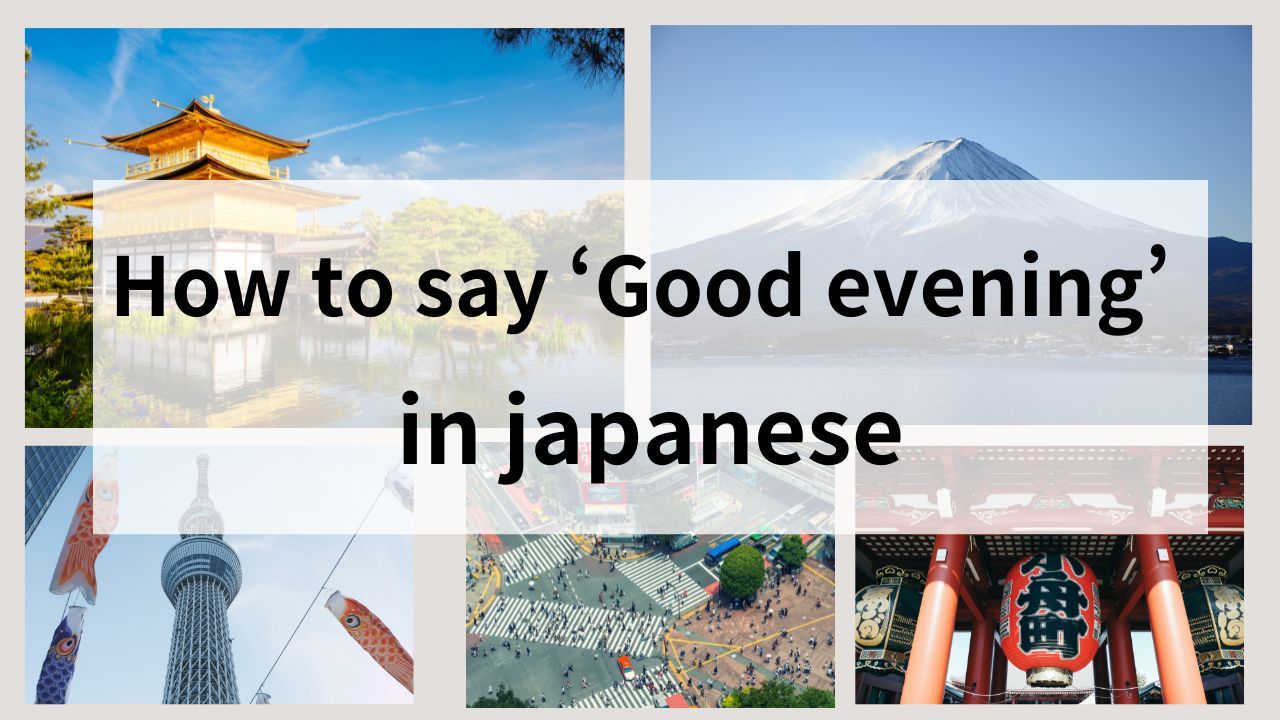Are you curious about how to say “Good evening” in Japanese? Greetings are an essential part of Japanese culture, and understanding the appropriate phrase for different times of the day can help you make a great impression. This guide explores the Japanese expression for “Good evening,” its usage, and cultural significance.
How Do You Say “Good Evening” in Japanese?
The standard way to say “Good evening” in Japanese is こんばんは (Konbanwa). This greeting is used after sunset, typically from early evening onward, and is appropriate in both formal and casual settings.
Pronunciation of “Konbanwa” (こんばんは)
“Konbanwa” is pronounced as kohn-bahn-wah. Make sure to elongate the “o” sound slightly for a natural intonation. It’s a simple yet polite way to greet someone in the evening.
Using “Konbanwa” in Context
Here are some examples of how “Konbanwa” is used in daily conversations:
- こんばんは、元気ですか? (Konbanwa, genki desu ka?): “Good evening, how are you?”
- こんばんは、会えて嬉しいです (Konbanwa, aete ureshii desu): “Good evening, I’m happy to see you.”
- こんばんは、失礼します (Konbanwa, shitsurei shimasu): “Good evening, please excuse me.” (formal)
The Cultural Significance of Evening Greetings in Japan
Evening greetings hold a special place in Japanese culture, reflecting politeness and respect. “Konbanwa” is not just a phrase but also an acknowledgment of the time of day and the social harmony valued in Japan.
Why Time-Specific Greetings Matter
In Japan, greetings change depending on the time of day to convey thoughtfulness. “Ohayou gozaimasu” (Good morning) is used in the morning, “Konnichiwa” (Hello) during the day, and “Konbanwa” in the evening. Using the correct greeting shows respect for cultural norms.
Non-Verbal Cues with Evening Greetings
When saying “Konbanwa,” it’s common to accompany the greeting with a slight bow, especially in formal or polite settings. This gesture enhances the respect conveyed through the phrase.
Practical Applications of “Konbanwa”
Here’s how to use “Konbanwa” effectively in different situations to build rapport and communicate respectfully in Japanese.
Greeting Someone in the Evening
Whether you’re meeting someone for dinner or attending an evening event, “Konbanwa” is the perfect way to greet others. For example:
- こんばんは、よろしくお願いします (Konbanwa, yoroshiku onegaishimasu): “Good evening, I look forward to working with you.”
- こんばんは、またお会いしましたね (Konbanwa, mata oaimashita ne): “Good evening, we meet again.”
Formal vs. Casual Evening Greetings
In casual settings, simply saying “Konbanwa” is sufficient. In more formal situations, pairing it with additional phrases, such as “yoroshiku onegaishimasu,” adds a layer of politeness.
FAQs
Here are some common questions about saying “Good evening” in Japanese.
Can “Konbanwa” Be Used at Night?
Yes, “Konbanwa” can be used at night as long as it’s before bedtime. For late-night interactions, “Oyasuminasai” (Good night) is more appropriate.
Is “Konbanwa” Used in Formal Settings?
Absolutely! “Konbanwa” is polite and can be used in both formal and informal settings. Adding a slight bow enhances its politeness.
Conclusion
Saying “Good evening” in Japanese with “Konbanwa” is a simple yet impactful way to show respect and connect with people. By mastering this and other time-specific greetings, you can navigate Japanese social settings with ease and cultural appreciation.








